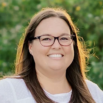Psst! Reflect Before Your Summer Break
The end of the school year can feel a bit “best of times/worst of times.” There’s a feeling of accomplishment as you get down to the final days. But you can also feel like you’re just trying to get across the finish line with all of the end-of-year activities, celebrations, projects, and tests.
When I was teaching, I loved the process of wrapping up the school year. It provided a sense of closure. It can be bittersweet knowing your students are moving on to other teachers and subjects, but it’s also exciting to think about starting fresh with a new group of students.
For teachers, the goal in the final days of the school year is to send students off feeling inspired and ready for the next challenge. But what about you? Have you taken the time to make sure you are also feeling motivated and ready for what’s next?
Once it’s finally over, it’s tempting to just box everything up and leave your plans, assessments, and endless piles of paper to be “next year’s problem.” But the best thing I ever did before leaving for summer break, while the challenges and victories were still fresh in my mind, was to spend some time honestly reflecting on what worked (and what didn’t work) over the past school year.
Setting aside time to reflect is a great way to gain insight and prepare for the fall. It might prompt you to adapt and improve a lesson, revamp a classroom routine, or revise a set of assignments for incoming students. As you look back and reflect in an intentional way, you won’t just think about the specific things you wish you’d done differently, you’ll give your future self the benefit of creating a plan in response. What will you do next time?
 Not sure where to start? Why not choose an area like active learning or effective feedback (or both if you’re feeling ambitious) and work through ways to grow and improve? Try using the Teacher Reflection Framework: Engagement through Effective Feedback or the Teacher Reflection Framework: Engagement through Active Learning to guide you through the process.
Not sure where to start? Why not choose an area like active learning or effective feedback (or both if you’re feeling ambitious) and work through ways to grow and improve? Try using the Teacher Reflection Framework: Engagement through Effective Feedback or the Teacher Reflection Framework: Engagement through Active Learning to guide you through the process.
You’ll ask yourself questions like “what?” to think through a specific action and outcome, “so what?” to reflect on what this tells you about your instructional practices or student needs, and “now what?” to come up with your plan of action to apply these new insights to your lessons. The frameworks are designed to be used repeatedly, so be sure to come back to them and reflect often throughout the next school year.
 As you create your plans of action, try using a customizable lesson plan template, such as the Feedback Focused Daily Lesson Plan or the Active Learning Daily Lesson Plan Template and Example. If you already have a required lesson plan template, use our examples to update it with the components you want to focus on.
As you create your plans of action, try using a customizable lesson plan template, such as the Feedback Focused Daily Lesson Plan or the Active Learning Daily Lesson Plan Template and Example. If you already have a required lesson plan template, use our examples to update it with the components you want to focus on.
Teaching is a continuous journey of self-reflection, learning, and personal development. Incorporating reflection into your routine — even at the end of the school year— can help further your growth as a teacher so you can enjoy more “best of times” moments in your classroom.
